All workflow performance data is exportable to the reporting software of your choice. Business intelligence reporting is a built-in feature of FlowWright. The Business intelligence reporting tab lets users view runtime and historical workflow performance data.
You can just navigate to the Analytics - Business Intelligence menu option. The following reports can be generated using the Business Intelligence reporting UI:
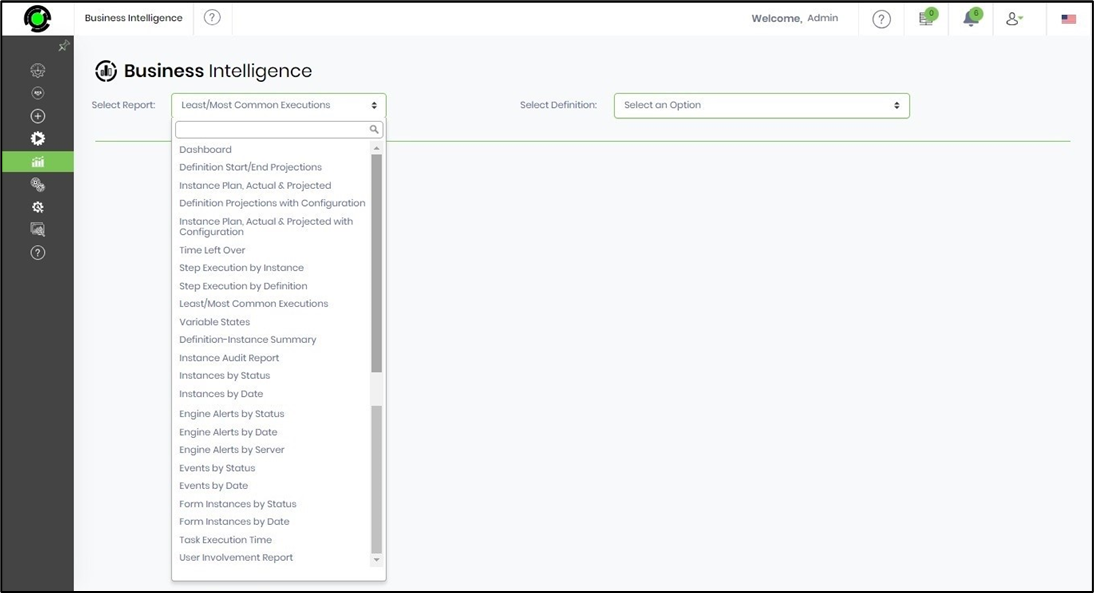
Select report type “Definition Start/End Projections”. Select the process definition from the dropdown list. Select the start date from the date picker. Click on the View button. The previous report, if existing, is rendered on the same page. Click on the “Compute Summary” button. The report is projected from the start date and rendered on the same page as shown below.
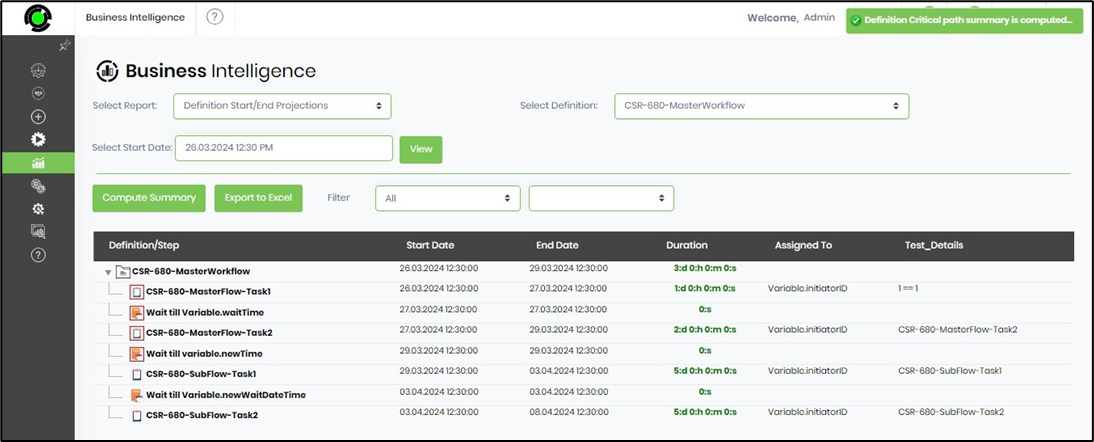
Select report type “Insurance Plan, Actual & Projected.” Select the process instance from the dropdown list. Click on the “Compute Summary” button. The instance report is rendered on the same page as shown below.
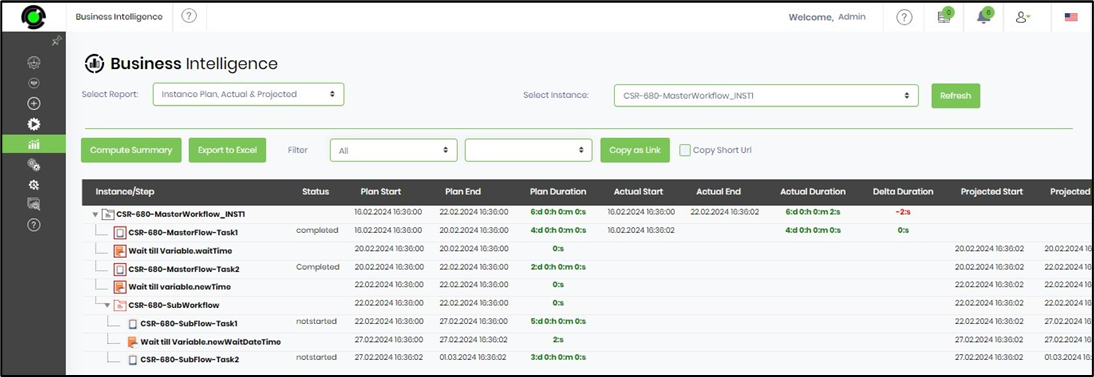
Select the report type “Time Left Over.” Select the process instance from the dropdown list. Click on the “Refresh” button. The previous instance report is used to compute the time left over, and the report is rendered on the same page as shown below.
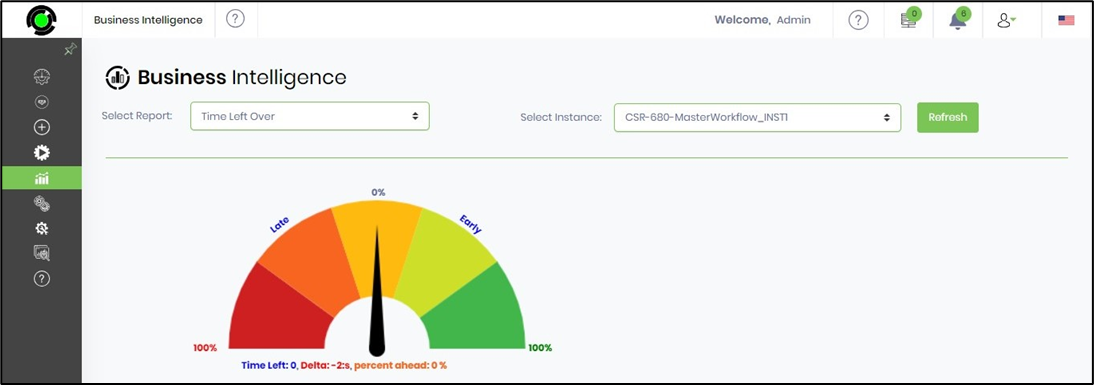
Select the report type “Task Execution Time.” Select the process definition from the dropdown list. The previous process instance is used to compute the task execution time, and the report is rendered on the same page, as shown below. Use the Search box to narrow down the result table.
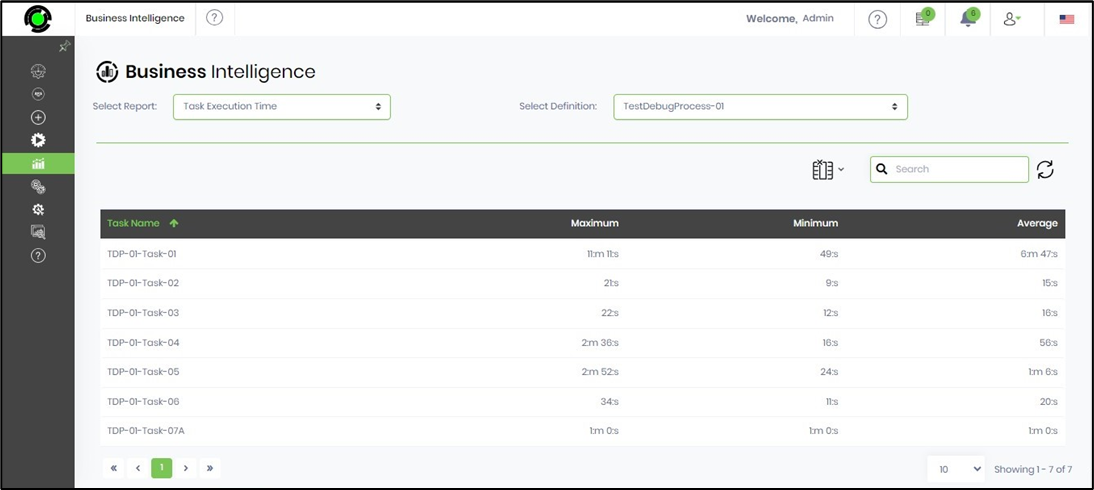
These business intelligence reports can be configured to report data within a specified date range. The pull-down menu allows users to select today, this week, last week, this month, and last month, as well as custom date ranges. All dates/times are stored within the database as UTC and displayed based on the user's local timezone.
Note: Engine runtime data are in ISO + UTC format.